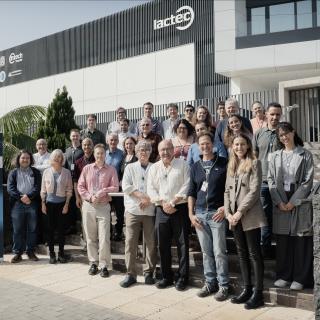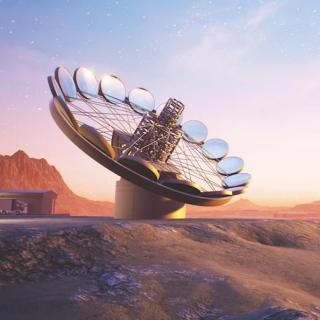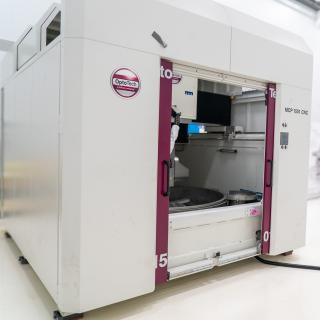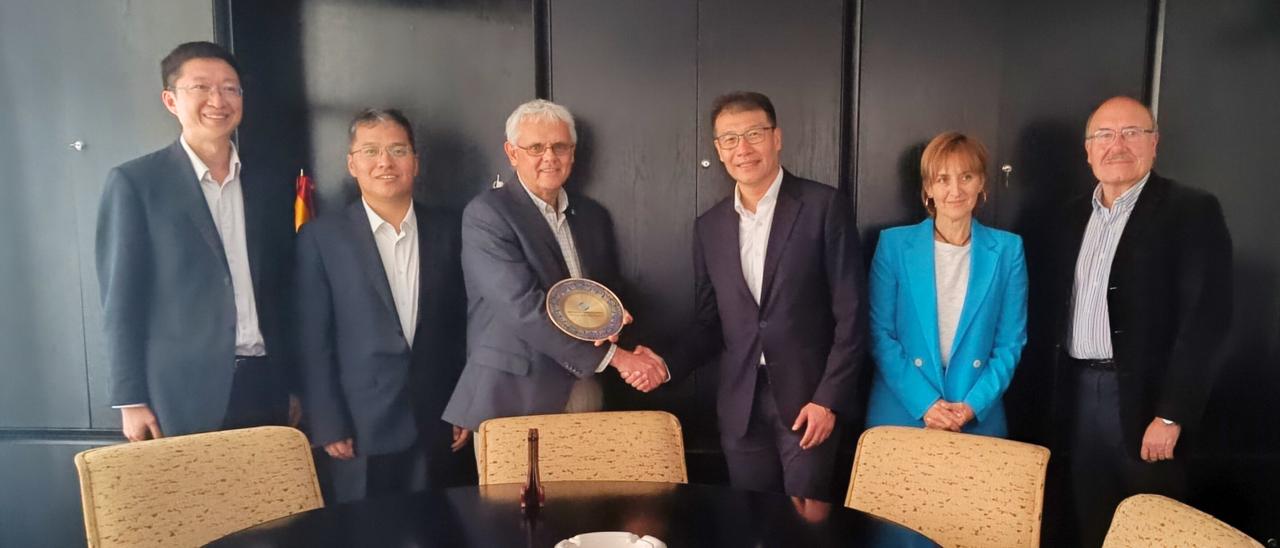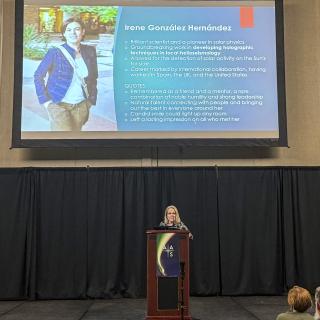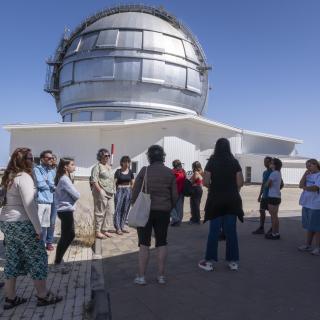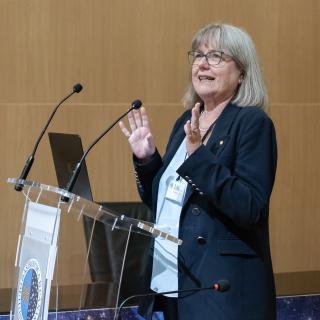El Instituto de Astrofísica de Canarias (IAC) ha recibido la visita de una delegación del Instituto de Óptica, Mecánica Fina y Física de Changchun (CIOMP), perteneciente a la Academia China de Ciencias (CAS), en el marco de una colaboración técnica vinculada al desarrollo del telescopio SELF (small Exo Life Finder), prototipo de 3,5 metros del futuro telescopio ELF.
La delegación estuvo encabezada por el Prof. ZHANG Xuejun, presidente de CIOMP y recientemente nombrado académico de la Academia China de Ingeniería (CAE), y contó con la participación del ingeniero senior Lingtong Zhang y del científico óptico Dr. Li. Durante su estancia, los representantes de CIOMP mantuvieron reuniones de trabajo con personal técnico y científico del IAC y del Laboratorio de Innovación en Opto-Mecánica (LIOM), con el objetivo de coordinar la fabricación de los 15 espejos de 0,5 metros que formarán el espejo primario de SELF. Además, el Prof. Zhang impartió un seminario en el Aula del IAC, dirigido a todo el personal y titulado “Ultraprecision Machining of Large Aperture Mirrors Using Robot-Enabled CCOS and MRF for Astronomical Telescopes and Space Instrumentation”.
CIOMP es una institución de referencia internacional en el campo de la óptica avanzada. Entre sus logros más destacados se encuentra la fabricación del espejo asférico de carburo de silicio más grande del mundo, con un diámetro de 4 m y el telescopio espacial chino de 2 m (CSST). Sus instalaciones están equipadas con una flota de 20 robots de alta precisión y emplean técnicas punteras como la interferometría de Fizeau y los ensayos de autocolimación óptica, lo que permite la producción de componentes ópticos de máxima calidad y exigencia.
El Prof. Zhang es considerado una figura clave en el desarrollo de tecnologías ópticas espaciales en China. Su trayectoria incluye avances fundamentales en el diseño de cámaras de alta resolución para satélites de observación terrestre, así como en métodos de fabricación y ensamblaje de sistemas ópticos de gran apertura y larga distancia focal en condiciones de microgravedad.
Esta colaboración permitirá dar un impulso decisivo al desarrollo de SELF, que se ubicará en el Observatorio del Teide y cuya construcción se enmarca dentro del proyecto LIOM, financiado por la Unión Europea. El telescopio SELF está concebido como un paso intermedio hacia la futura construcción de ELF, una infraestructura científica de nueva generación diseñada para la detección directa de vida en exoplanetas cercanos.

